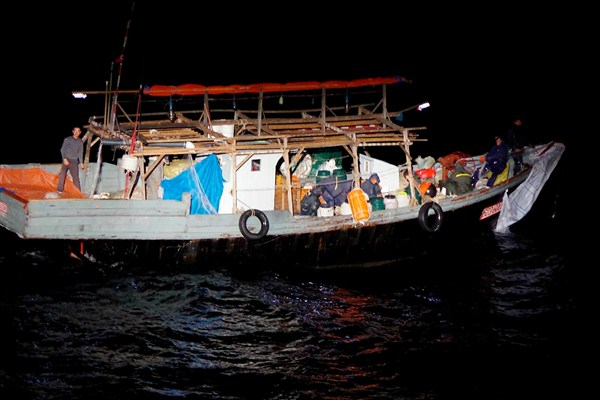Russian border guards have escalated a crackdown on North Korean squid poachers in recent weeks, detaining dozens of fishing vessels and hundreds of crew members for illegally fishing inside Russia’s exclusive economic zone in the Sea of Japan. Moscow had previously ignored North Korean incursions into its waters, but the increasing scale of the problem and a mounting domestic outcry finally prompted authorities to take action. In an email interview with WPR, Artyom Lukin, a scholar specializing in Russia’s ties with East Asia at the Far Eastern Federal University in Vladivostok, Russia, explains the timing behind Russia’s clampdown and how this issue is affecting the two countries’ broader relationship.
World Politics Review: How extensive is the North Korean practice of poaching in waters claimed by Russia? Has it intensified in recent years due to harsher sanctions being imposed on North Korea?
Artyom Lukin: North Korean poaching in Russian coastal waters in the Sea of Japan dates back decades, but over the past two or three years the scale of this practice has increased remarkably, leading to a small crisis in the waters of the Russian Far East. Since June, hundreds—by some accounts even thousands—of North Korean schooners and motorboats have illegally entered Russia’s exclusive economic zone to fish, mostly for squid. Apart from fishing without authorization from Russian authorities, the North Korean flotillas use destructive fishing methods like drift nets, which severely harm the marine environment by indiscriminately catching and killing many different species. To top it all off, local Russian fishermen also accuse the North Koreans of damaging or stealing their fishing gear in the process.

